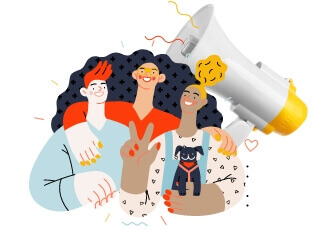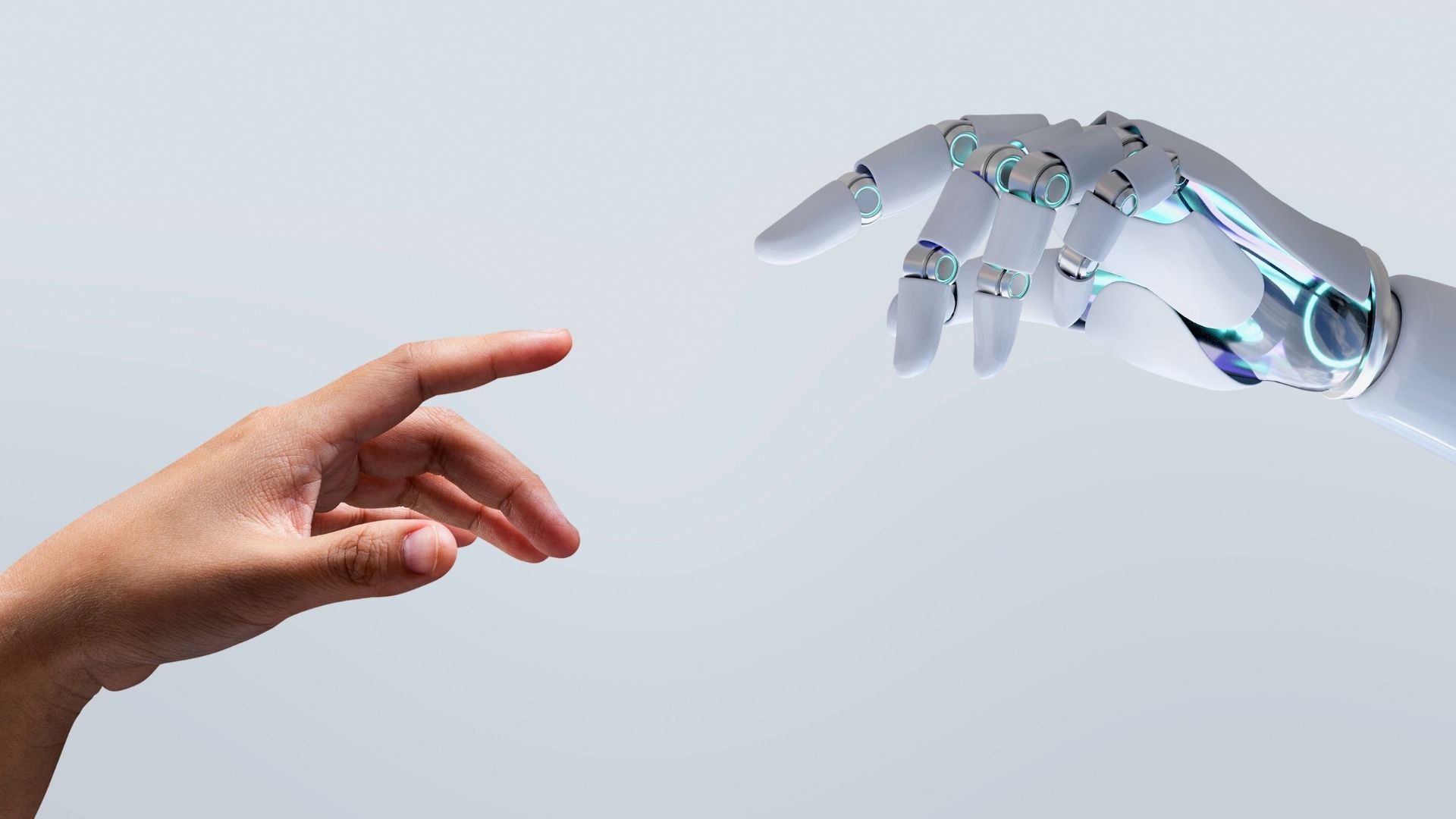Let’s address the elephant in every boardroom: AI can now do 70% of what marketing agencies do.
I’m not going to lie to you. ChatGPT can write your blog posts. Midjourney can create your graphics. Claude can develop your marketing strategy. Gemini can analyze your competitors.
Regular, everyday people can get 70% of the way to professional marketing output using tools available right now.
Your nephew, your intern, that guy who just discovered ChatGPT last week.
So why would you hire an agency?
Because in a world where everyone can achieve 70%, the companies that win are the ones that capture the last 10%.
The 70% is table stakes now
Here’s what’s actually happening: AI has democratized mediocrity.
Anyone can now produce decent blog content that ranks. Professional-looking graphics. Functional email campaigns. Basic social media strategies. Standard PPC campaigns. Cookie-cutter websites.
Your competitors are all using these same tools. They’re all getting to that 70% mark.
They’re all producing the same AI-flavored content, the same ChatGPT-structured strategies, the same Midjourney aesthetics.
AI has raised the floor. Everyone looks professional now. Everyone sounds competent.
But here’s the thing.
When everyone reaches the same baseline, the baseline becomes invisible. It becomes the minimum expectation, not the differentiator.

Why the last 10% is worth everything
The difference between 90% good and 100% good isn’t 10%.
It’s the difference between copy that sounds professional vs. copy that makes someone stop scrolling.
A website that looks nice vs. one that converts visitors into customers.
A strategy that makes sense vs. one that exploits your specific market position.
Graphics that follow trends vs. ones that define your brand.
Campaigns that run vs. campaigns that scale.
That last 10% is where the magic happens. It’s where generic becomes specific. Where good enough becomes exceptional. Where artificial becomes authentic.
And here’s what AI can’t do.
It can’t make the judgment calls that turn good into great.
The judgment gap AI can’t cross
I use AI every single day. My whole team does.
I’m not an AI skeptic. I’m an AI power user. I can work twice as fast because of it.
But AI is a people pleaser. It’s trying to guess what you want to hear. It hallucinates. It contradicts itself.
It produces what I call “endless slop.” Content that looks right but feels wrong.
AI doesn’t know when to break the rules for impact. It doesn’t know why your specific audience will respond differently than the average. It can’t read between the lines of what clients actually need.
It doesn’t know when “best practices” are actually worst practices for your situation.
It can’t challenge you when you’re wrong about your own business.
Here’s a real example. I fed AI a company’s entire brand research. 75 pages of it. Then I fed it their current Google Ads campaigns.
The AI correctly identified that none of their ads sounded like their brand.
But here’s what AI couldn’t do.
It couldn’t tell me WHY that mismatch was killing their conversion rates. It couldn’t identify that their ads were attracting price shoppers while their brand research showed they needed quality-focused buyers.
It took human judgment to connect those dots.


Why AI makes expertise more valuable, not less
This is the paradox that most people miss.
The easier AI makes the basics, the more valuable expertise becomes.
When anyone can generate 100 logo variations in an hour, the person who knows which one will resonate with your target market becomes invaluable.
When anyone can write 50 headlines in seconds, the person who knows which one will convert becomes essential.
When anyone can create a marketing strategy in minutes, the person who knows which strategy fits your specific situation becomes irreplaceable.
AI is incredibly good at pattern matching.
But business isn’t about following patterns. It’s about knowing when to break them.
The experience multiplier effect
Here’s what really happens when you combine AI with actual expertise.
AI alone gives you 70% quality, fast delivery, no strategic insight.
Expertise alone gives you 90% quality, slow delivery, strategic but limited by human bandwidth.
AI plus expertise? 100% quality, fast delivery, strategic and scalable.
I use AI to generate 50 initial concepts in the time it used to take for 5. Test 100 variations instead of guessing at 3. Analyze patterns across thousands of data points.
I automate the repetitive 70% so I can focus on the critical 10%.
But then I apply 20+ years of experience.
I know which of those 50 concepts will actually work. I understand why certain variations outperform others. I identify which patterns matter and which are noise.
I make the judgment calls AI can’t make.
The “good enough” trap
Here’s the seductive danger of AI.
It makes “good enough” so easy that you might settle for it.
Your AI-generated content will get some traffic. Your AI-designed graphics will look professional. Your AI-written ads will get some clicks.
But “some” isn’t enough when your competitors are fighting for the same customers.
The businesses winning right now aren’t the ones using AI instead of agencies.
They’re the ones using agencies that have mastered AI.
Because while you’re getting 70% results from AI, they’re getting 100% results from experts wielding AI like a weapon.

The authenticity premium
In a world of AI-generated everything, authenticity has become the ultimate premium.
Customers can smell AI content from a mile away. It has a certain flavor.
Competent but soulless. Correct but not compelling.
Real expertise brings stories from actual experience, not amalgamated internet wisdom. Opinions that might be unpopular but are authentic. Understanding of nuance that comes from years of trial and error.
The confidence to say “that won’t work for you” even when AI says it should.
Your customers aren’t comparing you to nothing.
They’re comparing you to everyone else using the same AI tools.
In that comparison, the last 10% isn’t just valuable. It’s everything.
The bottom line
Yes, AI has changed the game. Yes, you can do a lot yourself now. Yes, the barriers to entry have fallen.
But that’s exactly why expertise matters more than ever.
When everyone can reach 70%, the companies that thrive are the ones that push beyond what’s freely available.
They combine the efficiency of AI with the judgment of experience.
They understand that in a world of infinite content, the scarce resource isn’t information. It’s insight.
They realize that when AI can do everything, the competitive advantage is knowing what’s worth doing.
The question isn’t whether you should use AI. You absolutely should. I do.
The question is whether 70% is good enough for your business.
If it is, congratulations. You don’t need an agency.
But if you’re competing against companies that are pushing for 100%, if you’re in a market where the last 10% determines who wins and who gets forgotten, if you understand that “good enough” is the enemy of growth…
Then expertise isn’t optional.
It’s your competitive advantage.
Because AI can do a lot of things. But it can’t care about your business. It can’t fight for that last 10%. It can’t turn good enough into exceptional.
That still takes humans.
Specifically, humans who’ve mastered both their craft and the tools that amplify it.
The future isn’t AI or agencies.
It’s agencies that have weaponized AI in service of the last 10%.
Where do you want to compete? In the commoditized 70% or the differentiated 10%?
The choice is yours.
But your competitors have already decided.
Ready to push beyond what AI alone can deliver? Let’s talk about that last 10%.









